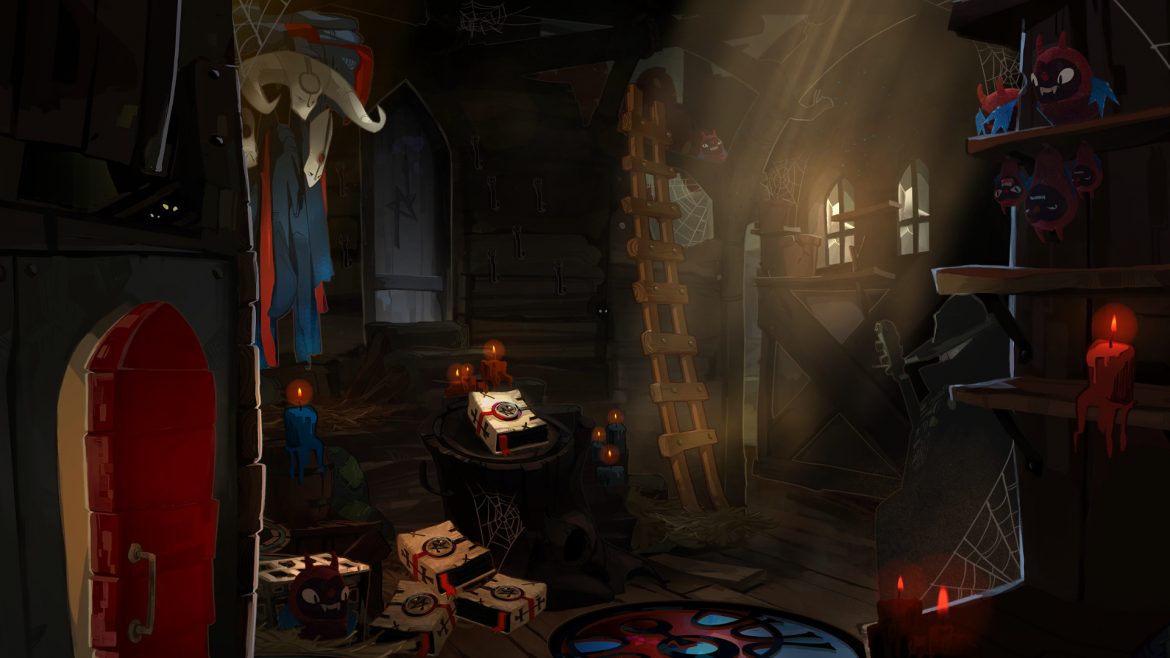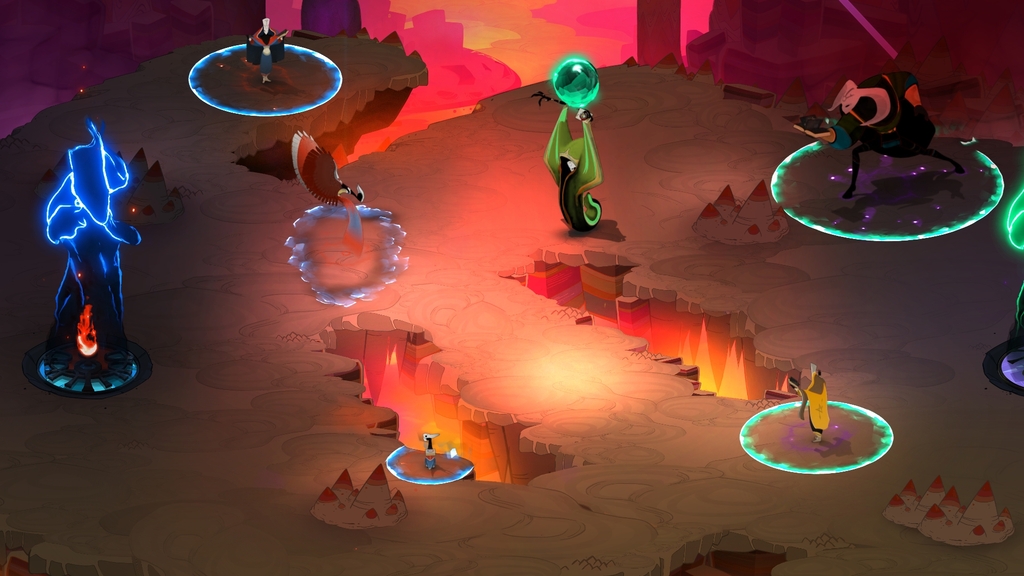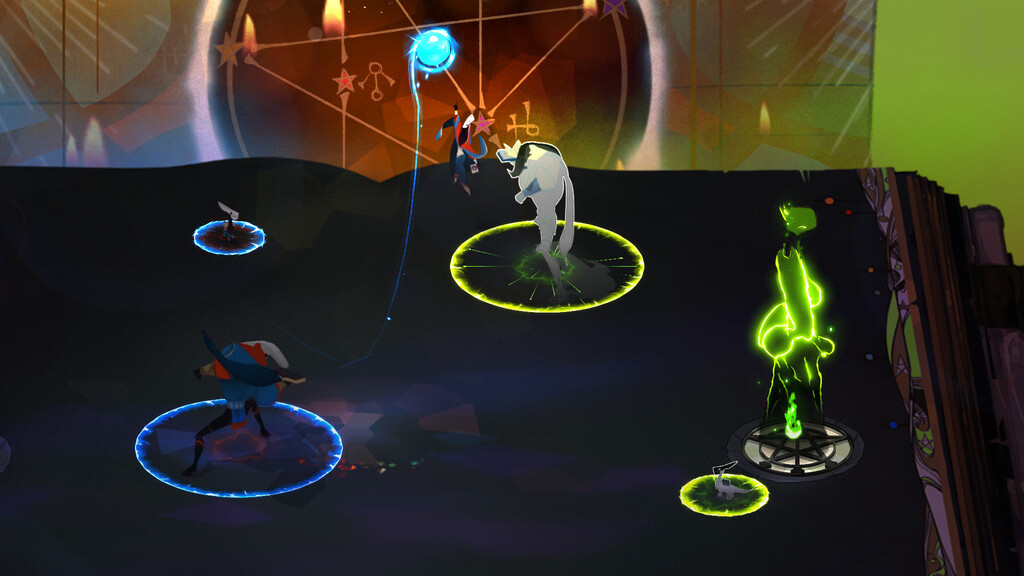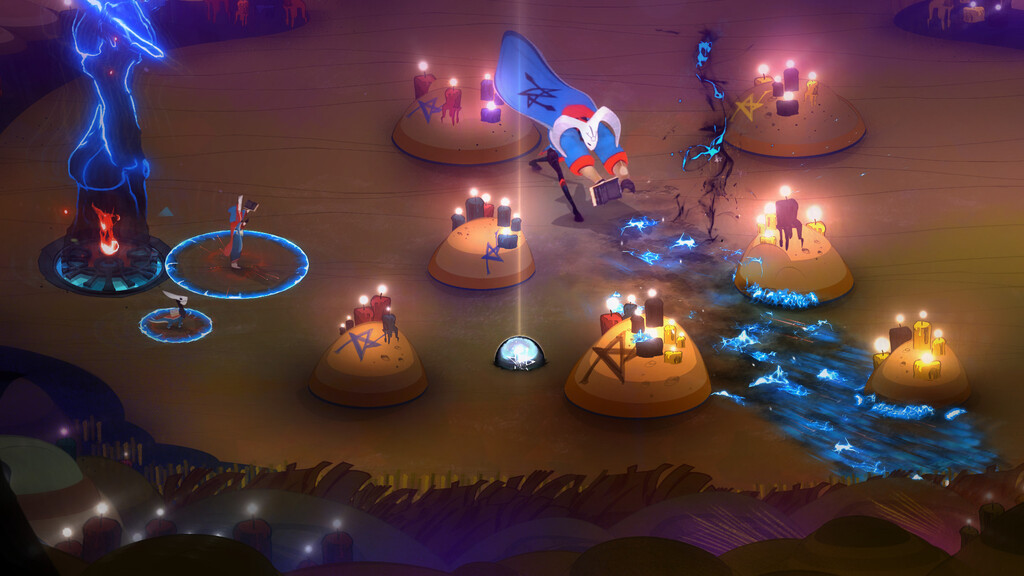On virtue and power.
Pyre, from Supergiant Games, reignites videogames’ ever-present movement of power in a dramatic display of virtues. The context of these movements takes place in the Downside purgatory where people are cast down from the Commonwealth to atone for transgressions.
Feudalist rules and Christian virtues govern this fictional society. People must band together below to test their virtues in games of Rites to rise above.
Read: The best games writing from around the web on all of Supergiant’s games as compiled by GoodGamesWriting
Two teams, consisting three players each, play this game to extinguish the opponent’s Pyre by scoring points. It’s a game of conflict where vertical movement of power produces winners for whom prestigious positions are offered in the Commonwealth with their past transgressions forgiven, and produces losers who must linger on in the Downside and keep working towards liberation.
Power produces winners and losers through movement.
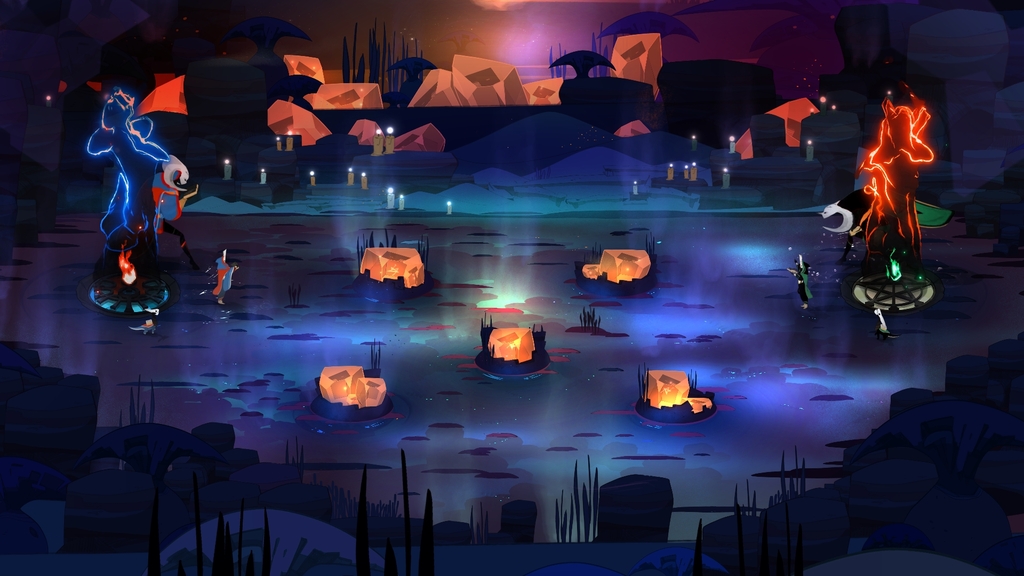
This power is symbolic just as this movement which videogames simulate. Distance created by this simulation brings these power movements closer by leaving them afar with simulation. In other words, videogames are excellent vehicles to prompt thoughts about what they simulate.
Consider the movement of currency and how videogames simulate this movement. One may look at the effects exchange of goods have on participants and the context where these effects emerge. Money in this sense is a carrier for power that creates hierarchies, affects the law and leads to construction of buildings for exchange. Power produces material and symbolic change.
Pyre simulates such material changes and represent symbolic ones that reveal power dynamics and their production. Games of Rites are held when the stars align in positions prescribed in the Book of Rites, reinforced by a judge serving the Commonwealth ruling class. It’s a game of chance for the downtrodden and outcasts to duke it out in a theatrical test of virtues.
Virtue
These virtues point towards notions needed to lead a good life that prescribe acquisition and honing of virtues that in turn pronounce one to be virtuous. It follows an ethical stance dating back to classical Greece where individual performance were prerequisite to virtues that legitimize individual performance.
This notion of individuality derives power from a collective that recognizes this individuality, explicitly as birth right and implicitly as merit, that grants the means to attain status and literacy towards power that come to symbolize individuality only in a collective that recognizes it as such. That is, Rites symbolize and reinforce vertical movement of power that upholds class struggle and perpetuates this movement to reproduce itself.
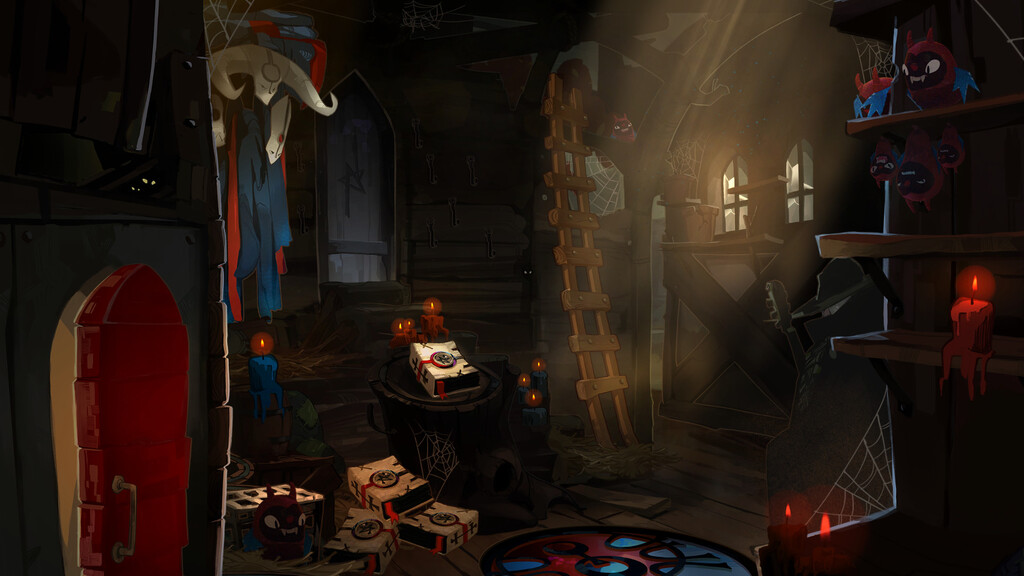
The player joins a band of misfits towards this goal as a character called the Reader. This player character is distinguished from other characters as a person who can read. By virtue of this ability, the Reader can decipher meaning from text and action to influence characters to the point of reading minds and controlling them during Rites.
Literacy is a transcendental virtue that remains invisible unlike virtues common to all characters that have names and carry numeric values.
These virtues are called Glory, Quickness, Presence and Hope.
They distinguish characters during Rites as their numeric values translate to traits of power, speed, aura and perseverance, that come to define them in their ethical implications as well. Numbers can be seen in order that take on hierarchical meaning in context of Rites that comes to reinforce historical notions about race and species the game relies on. Think about how this frames Pyre’s diverse cast.
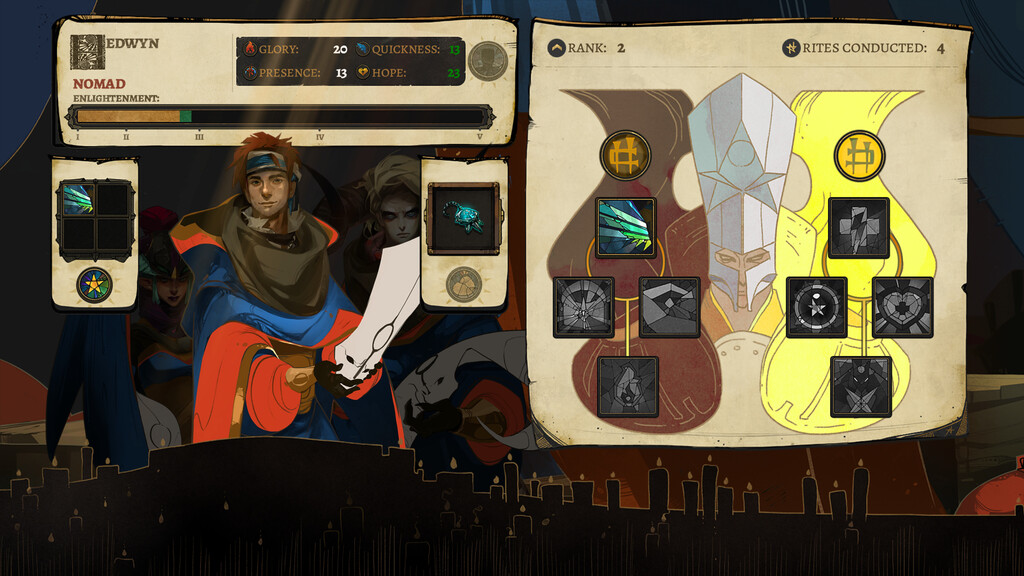
Pyre poses the question of how this virtuous system that upholds hierarchical power relations can be overcome. It proposes to assemble a Plan to overthrow the governing system of Commonwealth by liberating select individuals through games of Rites. It is to accept the rules that uphold this system while rejecting parts of it in turning down the offer for a good life after emerging victorious in Rites, to conspire and start a revolution instead.
The Plan is to reform the Commonwealth.
But how is it possible to beat a system that reproduces itself? Pyre suggests that it takes communal effort to ignite a revolution. Yet, this commune consists of individuals who are tested in games of Rites according to predefined virtues. After participating in Rites and between them, characters become more virtuous in these predefined categories. Success in games of Rites depends on these virtues inherent to races each individual belongs to and on the Reader to whom characters relinquish control over their body and thoughts.
This notion of collective is thus defined by shared individual virtues the system hinges on, rendering it a collection of virtuous forces that produce change within the bounds of this system. The effort towards liberation is thus not collective, neither individual, but a collection of forces shaped by predefined categories and the hand of the player that belongs to an individual that influences categories associated with notions of collective.
The Reader
The Reader in this sense is a wielder of an unwieldy force that at once resembles vertical and horizontal movements of power. The former movement is present in hierarchies typical of feudalist and capitalist dynamics the game draws on in representing religion and work that underpin the game of Rites, while the latter shows how change is induced outside of hierarchical constructions.
Rites symbolize and reinforce vertical movement of power that upholds class struggle and perpetuates this movement to reproduce itself.
Pyre’s virtuous lens conceal these movements because it’s capable of only seeing the result of production power creates that it then proceeds to evaluate according to virtues. Individuality, community and work rise from the flames as resembling silhouettes the virtuous lens tries to grasp with similar notions in hope of a good life, so it does everything to keep the virtuous fire alive that conceals what a good life is to not see the difference that appears and makes the hope for good life dissipate.
Through this lens, the Reader appears as God and character while being neither of them, characters as virtuous agents affecting change while change is affecting them, and the game world as virtuous place shaped by virtues while it’s a malleable place of virtue.
Power passes between these characters and places affected by movement as agents of change who change by affecting change. This makes the Reader neither God, nor character, but a resemblance of them by ways of change; characters more and less similar to God as Reader through their guiding hand; and the game world bound and unbound by virtues to a place of resemblances.
Zsolt is a writer and critic from Hungary. You can reach him @zoltdav on Twitter.
IMAGES: Supergiant Games
